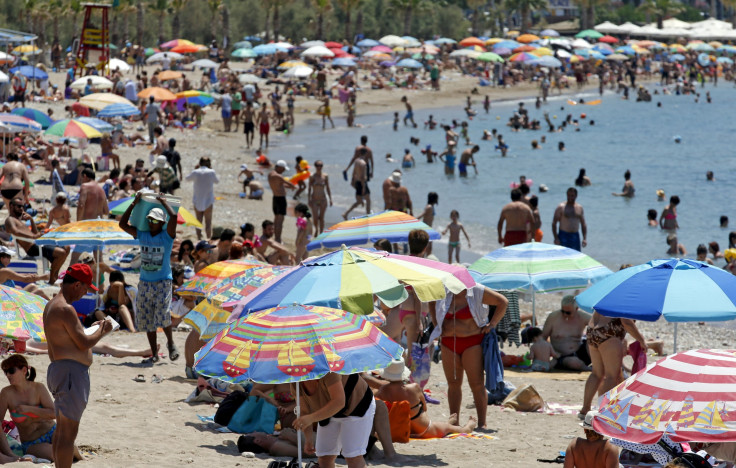Greece Debt Crisis: Tourist Businesses Fear Looming Tax Hikes

European leaders are holding another round of high-stakes meetings Sunday to wrangle a deal that could prevent Greece from exiting the eurozone. But small businesses, particularly in Greece’s tourism industry, are bracing for painful tax increases that could squeeze them further if the parties agree to Greece’s proposed terms for a bailout.
Concerns linger around proposals to increase value-added tax (VAT) rates, which could hike prices on food and hotels in a country where tourism makes up 17 percent of economic output. Under a slate of proposals submitted by Greece’s government to its European creditors Thursday night, VAT rates on restaurants would surge from 13 percent to 23 percent. Hotel tax rates would also rise from 6.5 percent to 13 percent. The toll would be harder on islands in the Aegean Sea, which also stand to lose their current VAT discount.
The proposals indicate they will begin the tax increases on “islands with the highest incomes and which are the most popular tourist destinations,” while other islands with lower incomes will keep VAT discounts for a longer period of time, the Telegraph reported.

Business owners in tourist spots fear the looming pinch. Businesses with primarily foreign clientele are expected to be able to absorb the losses, but it would be tougher for those in the Aegean islands that serve mostly Greek residents. “If there’s a new deal with the Europeans, maybe there won’t be so much uncertainty and Greeks will feel confident enough to go to the beach again,” Greek hotel owner Michail Efthimiou told the Associated Press. “But they don’t have the money to pay these tax increases. It’s impossible.”
The set of proposals is also geared at tackling Greece’s longstanding problems with tax evasion, but critics say the VAT hikes might just exacerbate them. “This is going to be another incentive for Greeks to tax evade. The economic situation of small businesses is so fragile right now that they will see this as their only opportunity to survive,” Aristidis Hatzis, a University of Athens professor of law and economics, told the AP.
The reforms also include a new criminal law on tax evasion that would broaden the definition of tax fraud and evasion to include all types of taxes. Greek Prime Minister Alexis Tsipras has been aiming to tackle tax evasion since he came into power earlier this year. Greece is known for having a large “shadow economy” of people earning money while avoiding tax payments. According to a 2010 International Monetary Fund report, the shadow economy made up 27 percent of Greece’s gross domestic product.
European leaders are expected to continue meeting late into Sunday evening to decide the next steps for the proposed third bailout after meetings Saturday resulted in deadlock.
© Copyright IBTimes 2024. All rights reserved.












